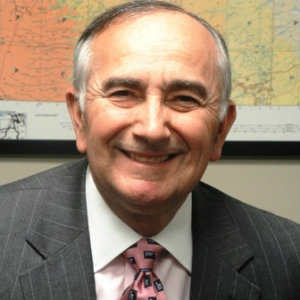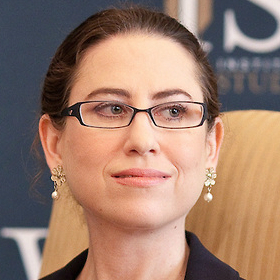U.S.-Iran Strategic Competition
Explore the challenges Iran presents to the United States, from its nuclear program to its regional ambitions.
MARCH 13 - MARCH 15, 2020
Washington, DC
The Yom Kippur War was the last in a series of conventional wars between Israel and its Arab neighbors that convulsed the second half of the 20th century. It is also one of the great — and largely understudied — hinge points of history. In the Middle East, what began as a surprise attack against the Jewish State on Judaism’s holiest day paradoxically marked the start of an improbable journey toward a new regional peace. For the wider Cold War, the Arab-Israeli upheaval brought the superpowers closer to nuclear cataclysm than any point after the Cuban Missile Crisis; it also set the conditions for the United States to outflank the Soviet Union and emerge as the preeminent power in the Levant, while consigning Moscow to the fringes of the region where it would remain for decades. And for the world economy, October 1973 would unleash equally epic change — as the Arab oil embargo smashed and then remade Western industry.
This Weekend Seminar, taught by foreign policy scholar Vance Serchuk, will study the dramatic events surrounding the Yom Kippur War of October 1973. Students will consider the war as a case study in the exercise of military, diplomatic, and economic power, analyzing the collision of rival U.S., Soviet, Israeli, and Arab strategies. The seminar will also explore the larger-than-life personalities at the center of the conflict — Richard Nixon, Henry Kissinger, Leonid Brezhnev, Anwar Sadat, and Golda Meir — examining how the character and decisions of these individual leaders shaped the course of the war and its aftermath.
Images courtesy CIA via WikiCommons, Israeli troops | Israeli tanks
Vance Serchuk on American interventions abroad
This seminar will take place in Washington, DC. Travel, housing, meals, and course materials are provided by the Hertog Foundation.

Vance Serchuk is Executive Director of the KKR Global Institute and an Adjunct Senior Fellow at the Center for a New American Security. Prior to joining KKR, Mr. Serchuk served for six years as the senior national security advisor to Senator Joseph Lieberman (I-Connecticut).

Vance Serchuk is Executive Director of the KKR Global Institute and an Adjunct Senior Fellow at the Center for a New American Security.
Prior to joining KKR, Mr. Serchuk served for six years as the senior national security advisor to Senator Joseph Lieberman (I-Connecticut). In this capacity, he worked on a broad range of international issues, including comprehensive sanctions legislation, the U.S. rebalance to the Asia-Pacific, and the U.S. response to the Arab Spring, traveling to over 60 countries in Asia, Latin America, Africa, and the Middle East.
From January to July 2013, he was a Council on Foreign Relations-Hitachi International Affairs Fellow, based in Japan, and a regular columnist for the Washington Post. His writings have also appeared in the New York Times, Wall Street Journal, and Los Angeles Times.
Mr. Serchuk is a summa cum laude graduate of Princeton University, holds a J.D. from Yale Law School, and was a Fulbright scholar in the Russian Federation.
READINGS:
DISCUSSION QUESTIONS:
READINGS:
DISCUSSION QUESTIONS:
READINGS:
DISCUSSION QUESTIONS:
READINGS:
DISCUSSION QUESTIONS:
READINGS:
DISCUSSION QUESTIONS:
READINGS:
DISCUSSION QUESTIONS:
Mick Ryan
Mick Ryan is a retired major general in the Australian Army. He is now an adjunct fellow at the Center for Strategic and International Studies in Washington DC, and a non-resident fellow of the Lowy Institute in Sydney. In January 2023 Mick was also appointed as an Adjunct Professor at the University of Queensland in Brisbane, Australia.

James M. Dubik
LTG James M. Dubik (U.S. Army, Ret.) is a Senior Fellow at the Institute for the Study of War and a Professor at Georgetown University’s Security Studies Program. General Dubik has extensive operational experience in Iraq, Afghanistan, Japan, Korea, Thailand, Bosnia, Haiti, Panama, and in many NATO countries.

Frederick W. Kagan
Frederick W. Kagan is a Senior Instructor with the Hertog War Studies Program at the Institute for the Study of War. The author of the 2007 report “Choosing Victory: A Plan for Success in Iraq,” he is one of the intellectual architects of the successful “surge” strategy in Iraq. He is the director of AEI’s Critical Threats Project.

Kimberly Kagan
Kimberly Kagan is a Senior Instructor with the Hertog War Studies Program and founder and president of the Institute for the Study of War. She is a military historian who has taught at the U.S. Military Academy at West Point, Yale, Georgetown, and American University.

Michael Doran
Michael Doran, an expert in U.S. policy toward the Middle East, radical Islam, and the Arab- Israeli conflict, is a Senior Fellow at the Hudson Institute in Washington, DC. He has also held a number of senior U.S. government posts related to Middle East policy and strategic communication.

Vance Serchuk
Vance Serchuk is Executive Director of the KKR Global Institute and an Adjunct Senior Fellow at the Center for a New American Security. Prior to joining KKR, Mr. Serchuk served for six years as the senior national security advisor to Senator Joseph Lieberman (I-Connecticut).